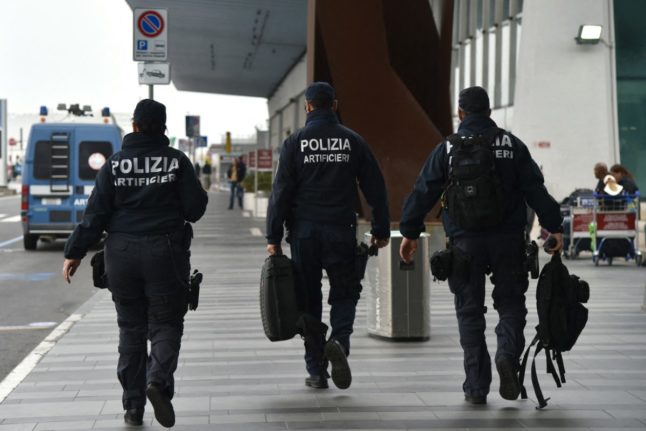Italian authorities agreed on Monday to increase anti-terrorism monitoring ahead of the Easter holidays, with more surveillance to be carried out at popular tourist spots and at “sensitive sites”.
Deputy Prime Minister and Foreign Minister Antonio Tajani had stressed to the public on Sunday that Italy faced “no concrete risk” at the moment, and said the country’s security and law enforcement services were “always on the alert to prevent any attack.”
READ ALSO: Italy on maximum terror alert over Easter after Moscow attack
Nevertheless, he warned that “during the Easter holidays you will need to be very careful.”
Italy has been on its highest-level terror alert since October 2023 following the outbreak of the Israel-Hamas war, meaning the official alert level could not be raised any further on Monday.
The plan for increased surveillance and the warnings to the public in Italy came following the terrorist attack at a concert hall in Moscow on Friday where armed men opened fire and set the building ablaze, killing at least 133 people.
Ministers said that terror plots on this scale, organised by groups, “would be intercepted sooner in Italy” and said the main terror threat Italy faced at the moment was mainly from “lone wolves”.
He was referring to the fact that recent deadly attacks in Europe have often been carried out by a single perpetrator, not affiliated to a terrorist organisation. The profile of attackers is often isolated young men who have become radicalised.
Unlike most other major European countries, Italy has not so far suffered any deadly attacks at the hands of jihadist militants.
Experts have suggested that Italy has been able to prevent attacks partly due to lessons learned from anti-mafia policing, and that it also has a lower number of citizens at risk of radicalisation than countries like the UK or France – and therefore fewer suspects to watch.
The country arrests dozens of suspects every year on terrorism charges following surveillance operations. Earlier in March, three men of Palestinian origin were arrested in the Abruzzo town of l’Aquila, alleged to be involved in an organised terror plot.
In 2023, at least 56 foreign nationals were deported from Italy after facing terror-related charges.
Italy is generally seen as being at a lower risk of being hit by a major terror attack than some neighbouring countries. So what exactly does the raised alert level mean for people in the country?
Heightened security
While much of Italy’s counter-terrorism work goes on behind the scenes, there will be increased police and military patrols over Easter in busy public places deemed “sensitive”, including shopping centres and places of worship.
The most visible manifestation of the heightened security alert in Italy is the armed soldiers on patrol outside government buildings, tourist attractions, airports, train stations, central squares and in other busy public areas.
Unlike in some other European countries, Italy’s airports do not regularly experience bomb hoaxes and other threats. While no additional security checks for passengers are being introduced, security is likely to remain tight at Italian airports this Easter, as at all European transport hubs.
If you’re visiting a major tourist attraction over Easter or attending any type of large public event, expect a high level of security at the door.
Travel advice
So far, no country has warned its nationals against visiting Italy – the US State Department still lists the alert level for Italy as Level 2: Exercise Increased Caution, which has seen no change since July 2023.



 Please whitelist us to continue reading.
Please whitelist us to continue reading.
Member comments